Porcelain countertops have been gaining popularity in recent years due to their exceptional durability, versatility, and aesthetic appeal. If you’re considering porcelain countertop slabs for your kitchen or bathroom, this comprehensive guide will help you make an informed decision. We’ll explore the pros and cons of porcelain countertops, their thickness options, things to consider for installation, cleaning tips, and pricing.
Can I use porcelain slabs for countertops?
Porcelain slabs are an excellent choice for countertops. These slabs are known for their remarkable hardness, durability, and low water absorption rate, making them a perfect fit for kitchen and bathroom countertops. They are also heat and UV-resistant making them a wonderful choice for an outdoor kitchen countertop as well. Unlike other countertop materials, porcelain is relatively inexpensive and easy to install. It can be installed directly on your existing countertops, saving both time and money.
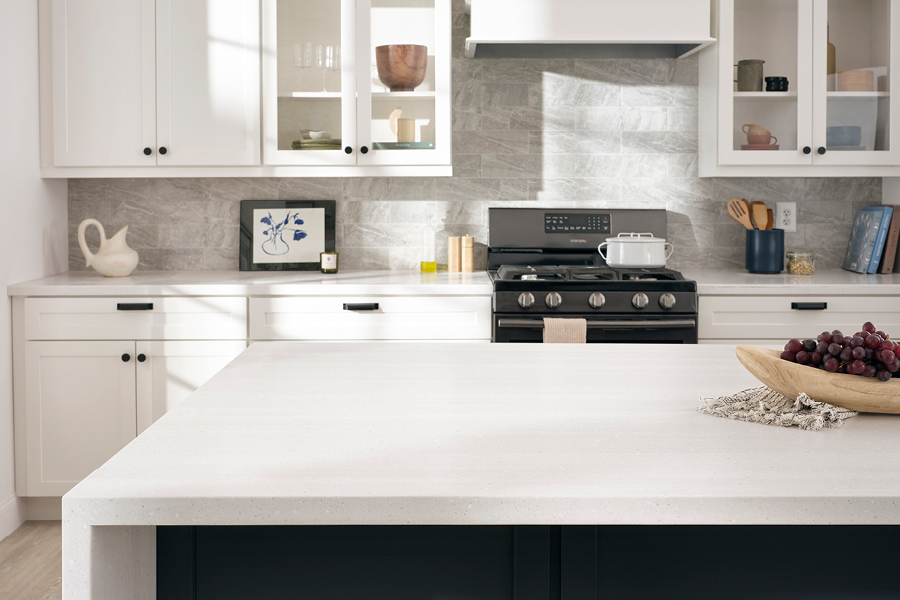
Pros of porcelain countertop slabs
Porcelain countertop slabs have many advantages! The main advantages are that porcelain countertop slabs are easy to install and maintain, UV light and heat resistant, environmentally friendly, and prevent bacterial growth.
Easy Installation & Maintenance
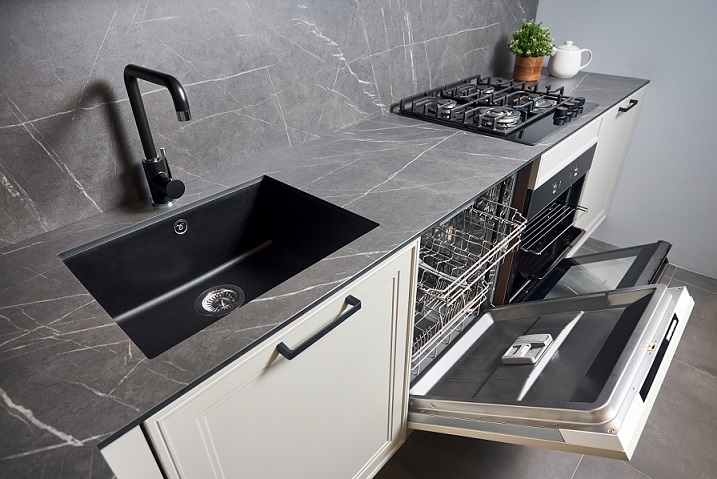
UV Light & Heat Resistance
Unlike some natural stone materials, such as granite, porcelain is highly resistant to UV light and heat. This makes it an ideal choice for both indoor and outdoor applications. Your porcelain countertop won’t fade or discolor when exposed to sunlight, making it perfect for indoor or outdoor kitchens and entertainment areas.
Environmentally Friendly
If you’re environmentally conscious, you’ll be pleased to know that porcelain countertops are an eco-friendly choice. They are made from natural raw materials and are recyclable, reducing their impact on the environment. Additionally, their durability means they won’t need frequent replacements, further reducing waste.
Prevents Bacterial Growth
Porcelain is naturally resistant to bacterial growth, making it a hygienic choice for kitchen countertops. Its non-porous surface prevents liquids and bacteria from seeping into the material, making cleanup and maintenance a breeze.
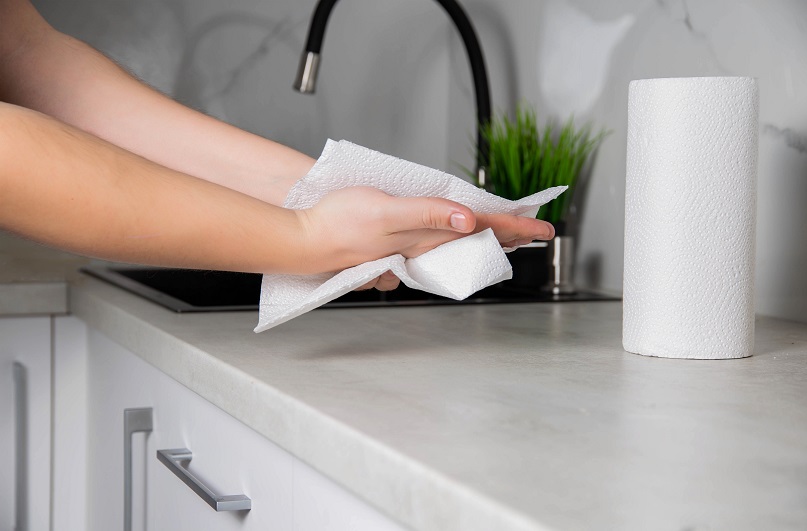
Cons of porcelain countertop slabs
While porcelain countertops offer many advantages, they are not without their drawbacks. The main disadvantages of porcelain countertop slabs are the limited edge styles, they are easy to crack, and it can be a challenge to find porcelain countertop experts.
Edge Styles
One limitation of porcelain countertops is their edge styles. The pattern and design are typically only visible on the surface, so your edge options are somewhat limited. However, this may not be a significant concern for those who prioritize the look of the surface.
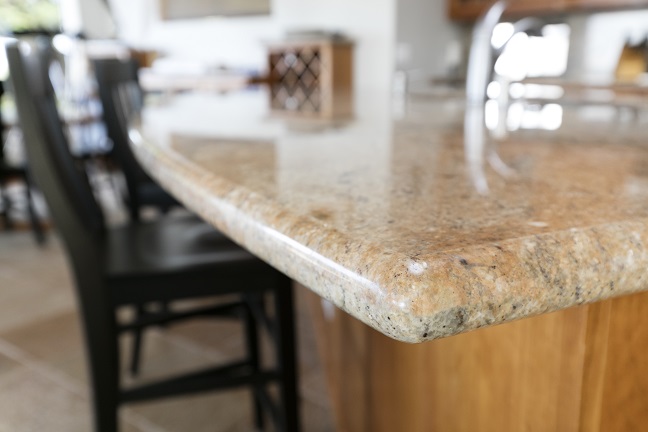
Easy to Crack
Porcelain slabs are thin and can be relatively fragile compared to some other countertop materials. Care must be taken during installation to prevent cracking. However, once correctly installed, porcelain countertops are quite sturdy and durable.
Hard to find experts
Porcelain countertops are a relatively new addition to the United States market. Finding experienced professionals who specialize in porcelain countertop installation can be challenging at this point. It’s essential to work with experts who understand the unique requirements of this material to ensure a successful installation so that they will last for years to come.
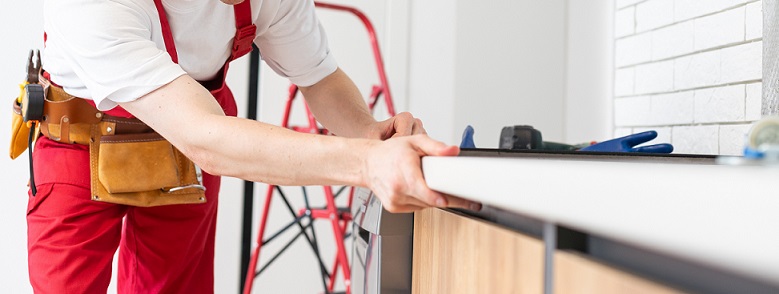
How thick is slab countertop?
Porcelain slabs are available in various thicknesses to suit different projects and applications. The most common thicknesses are 6mm, 12mm, and 20mm which is also known as 2cm. Additionally, each of the thickness options comes in various sizes. These options provide flexibility in design and can accommodate various preferences and needs.
How to Clean Porcelain Countertops?
Cleaning porcelain countertops is a straightforward process. Porcelain countertops do not require special care. They are very simple and easy to clean with things you most likely already keep in your home. However, it is important to know that porcelain countertops will require a more than weekly cleaning routine as they need to be regularly wiped down to preserve them.
To maintain their beauty and durability, you’ll want to do regular cleaning by using a mild liquid soap or detergent mixed with warm water to clean your porcelain countertop. Avoid abrasive or acidic cleaners, as they can damage the surface. You’ll want to also regularly wipe the countertops down by using a soft cloth or sponge, removing any spills or residue. After cleaning, be sure to always rinse the countertop with clean water to ensure all soap or detergent residue is removed. Finally, gently dry the surface with a clean, lint-free cloth to prevent water spots. Regular cleaning will keep your porcelain countertop looking pristine for years to come.
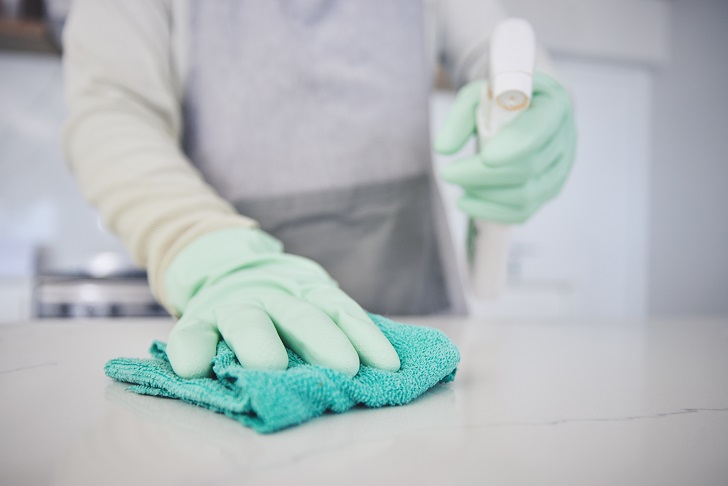
How much are porcelain slab countertops?
Porcelain slab countertops are a cost-effective choice. The price typically falls around the halfway point of granite and quartz countertops. On average, you can expect to pay between $60 to $120 per square foot for porcelain slab countertops. The final cost may vary depending on factors such as slab thickness, design, and installation requirements depending on the project.
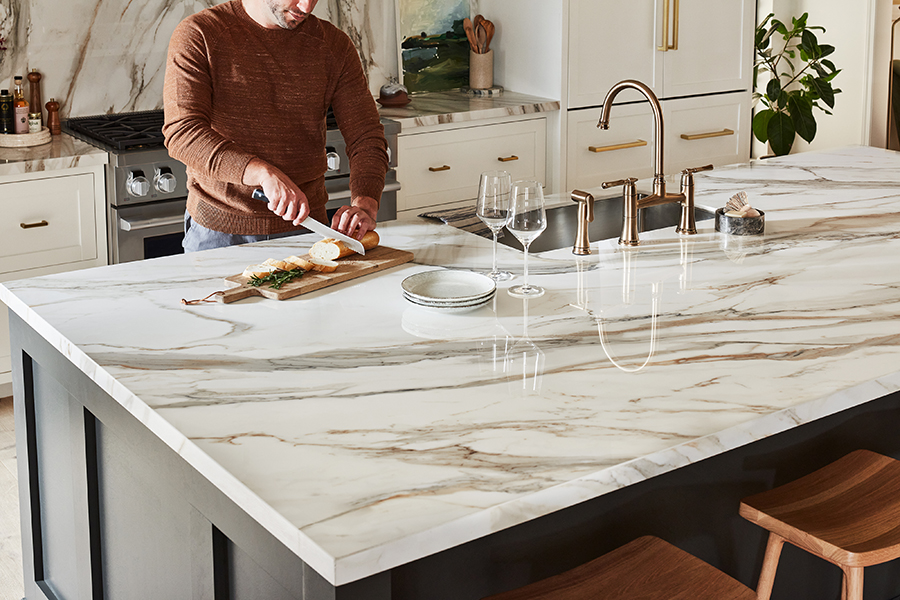
Contact us
If you want to learn more about porcelain countertop slabs or are ready to explore your options, LX Hausys is here to help. Contact us today to schedule a consultation and discover how porcelain countertops can elevate the beauty and functionality of your space.
Don’t hesitate to reach out with any questions or inquiries – we look forward to assisting you in creating the perfect countertop solution for your home. Contact us now and let’s start your porcelain countertop journey!
